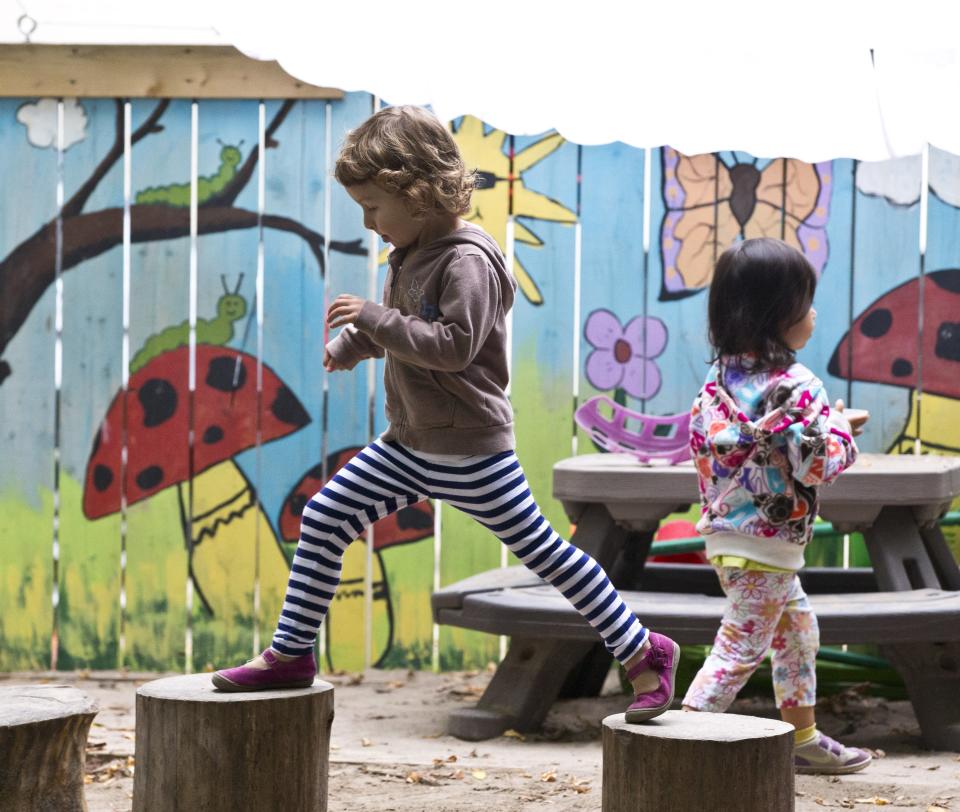“Childcare is the chokepoint of the recovery”: economist

The federal government signalled it would include a child care action plan in its recovery priorities to support women returning to the workforce. The plan can’t come quickly enough as daycare centres are forced to shutter and the economic recovery stalls, argues Armine Yalnizyan, economist and Atkinson Foundation fellow on the future of workers. Yalnizyan says this marks a pivotal moment in designing an early learning and childcare system that serves the needs of the Canada’s economic future – one that the country cannot afford to fumble.
“We have this remarkable opportunity to be investing in the next generation, childcare is the chokepoint of the recovery right now – so we need it right now,” Yalnizyan told Yahoo Finance Canada, “We can't afford to let the system collapse.”
In the Atkinson Foundation report on child care, Yalnizyan and other advocates stressed the importance of preventing a reduction in the system’s capacity, and for providing high quality childcare at a lower cost to parents. The Organization for Economic Co-operation and Development’s (OECD) average rate of early learning enrolment from birth to age 12 is 70 per cent. In Canada, only 27 per cent of these children are in regulated, licensed facilities, though it is unknown how many are in unlicensed paid and unpaid care.
Yalnizyan adds that the consequence of failing in these supports extend beyond the pandemic recovery, but have severe implications in readying the next working age cohort to replace a rapidly retiring Boomer generation.
“This isn't just warehousing children so mommy can go back to work, it's taking advantage of the moment we're in to make sure that all kids are reaching their maximum potential at a time when, in a few years only... we're going to need everybody to have all hands on deck, because of population aging.”
Governor General Julie Payette acknowledged how the pandemic impacted low-income women in the Speech From The Throne and described an action plan that would recruit a “task force of experts” with “diverse voices”.
“We have long understood that Canada cannot succeed if half of the population is held back,” Payette said in Parliament. “Canadians need more accessible, affordable, inclusive, and high-quality child care.”
The government said it would be eyeing the Quebec child care model in its nationwide plan, which has a $2 billion, publicly-subsidized program for children under five. Yalnizyan commends this approach as long as the affordability is paired with higher quality, which begins with properly trained and compensated staff. The Atkinson report described the Royal Commission on the Status of Women dated 50 years ago which noted that child care workers were paid less than zookeepers. “Sadly, this is still the case,” read the report, adding that worker retention is difficult under these circumstances.
“This throne speech talked about resilience about 150 times,” Yalnizyan said, “You cannot build resilience in the system if you're not building quality childcare. Quantity is important, quality is critical, and quality rests entirely on the qualifications of the educators.”
These announcements come at a time when other voices in the business sector have called on the government to provide improved supports to pave the way for a more equal recovery. Earlier in the week, Bank of Nova Scotia CEO Brian Porter recommended increasing the Canada Child Benefit to $5,000 for each child in daycare, providing households with over $400 monthly.
“Everybody can improve, everybody has to improve,” Yalnizyan said, “If we're going to succeed in the 21st century, If we're going to get through this freaking pandemic and get to that place where we can talk about thriving post-pandemic. But without these systems in place, there will be no thriving - there will only be scramble.”

 Yahoo Finance
Yahoo Finance 